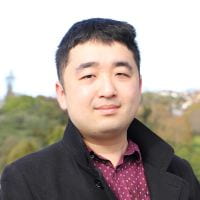If the last blog wasn’t in-depth enough for you, I have brought you two of the best in the business to tell you more about Engineering Science! Kevin and Justin taught the OR and CM sections in ENGSCI263 respectfully and have done an amazing job this year! They are both outstanding lecturers and pride themselves on teaching high quality content to students. Here’s a little insight on how they have found Engineering Science:

Kevin Jia (ENGSCI 255 and ENGSCI263 OR lecturer)
Why should someone choose Engineering Science?
Engineering Science is the specialisation for you if you enjoy mathematics and coding, and love applying these to solve real-world problems. We emphasise computational mechanics (think fluid flows, analysis of rockets, etc.) and operations research/analytics (think optimisation and data science), which are both skills in demand. We do more theory and maths than most other specialisations, and accordingly we do less stuff ‘hands-on’.
The skills taught help you learn how to learn really quickly to deliver results, which is valued in every profession out there. Note EngSci is not quite Software Engineering – EngSci focuses on coding to solve problems, rather than coding to develop a product. That being said, there are EngScis working at top software companies (e.g. Google, Atlassian, Xero, …) – after taking a few good electives and self-learning the particular software skills.
We are still one of the smaller specialisations, so you can get to know your classmates and lecturers quite well
EngSci grads work in many industries, e.g. traditional engineering (transportation and mechanical design) to software, to business consulting and finance, and the public sector – so it is a very flexible programme. That being said, internships are a bit trickier to find for EngSci’s in Part II, but this hasn’t stopped them from being successful in Part III and onwards! As the classes get bigger, more and more companies now explicitly advertise for EngSci grads – that didn’t happen 10 years ago.
What have you enjoyed the most about teaching Engineering Science?
Teaching Engineering Science is really rewarding because my field (optimisation and data/statistics) can be applied almost anywhere. (This includes MM2 and MM3 which EngSci runs – yes I know have been mentioned on this blog!) It’s great to hear ex-students use the concepts/skills I have taught on their jobs.
Also, going back to the smaller specialisation thing – I have met so many interesting people over the last few years. Students in Engineering Science, and indeed Engineering in general, are really onto it and passionate, and that makes my work worthwhile!
What are your top tips and advice for upcoming Engineering Science students?
- Figure out why you want to do Engineering Science. The flexibility of Engineering Science can cut both ways – it opens a lot of doors, but it’s also easy to be overwhelmed by the options.
- Come to class (when we are out of lockdown) and get to know your classmates. This is a very easy way to network, and really pays off 3-4 years after you leave Uni. The field trip helps too!
- Keep on top of coursework. There’s always a lot going on, and in Part II there are more assignments and quizzes to keep you busy. It’s far too easy to fall behind and be constantly playing catch-up which is just stressful, so don’t let that happen.
Justin Fernandez (BIOMENG221 and ENGSCI263 CM lecturer)

Why should someone choose Engineering Science?
Engineering Science teaches you core engineering topics and skill sets, and integrates that with computational engineering skills to develop real world solutions. Engineering Science graduates work in all sorts of fields including geothermal engineering, biomedical engineering, computational mechanics, operations research, and analytics including finance and consulting just to name a few. If you enjoy working with many different disciplines, developing computational engineering solutions, and making real world impact then Engineering Science is for you. Personally, Engineering Science has opened up many career opportunities, taken me to many places internationally, and connected me with a diverse group of colleagues.
What have you enjoyed the most about teaching Engineering Science?
As a graduate of Engineering Science myself I love showing the next generation of engineers the places that this degree can take you. Having worked in mining engineering, biomedical engineering, in research, and as a government scientist, I always found that the skills I learnt in Engineering Science equipped me to handle any challenge. I especially enjoy showing new engineering students how the tools we teach them can be used to address real world problems through examples that I have worked on in industry myself.
I’m always proud of watching many of my former part IV project students, and postgrads move into rewarding careers and it’s nice when they send me an email many years later to catchup or say thanks.
What are your top tips and advice for upcoming Engineering Science students?
My number one tip is to enjoy the journey and choose papers that you are passionate about. Don’t feel pressured to stay in one theme such as computational engineering mechanics, geothermal, operations research, or analytics, but rather mix and match. Having a broad and interdisciplinary approach is the key to solving problems that Engineering Scientists are really good at
Secondly, engage in as many opportunities as you are presented with, such as internships in the department, clubs, and competitions. Start thinking about what you are passionate about so that you can connect with the right academics early and choose electives and a part IV project that excites you.
Thirdly, explore the exciting Masters and PhD opportunities (and scholarships) we have that will help to further specialise your skills when you finish.
We are a smaller department but have a family like feel. Pop into our offices anytime to have a chat about what interests you.
